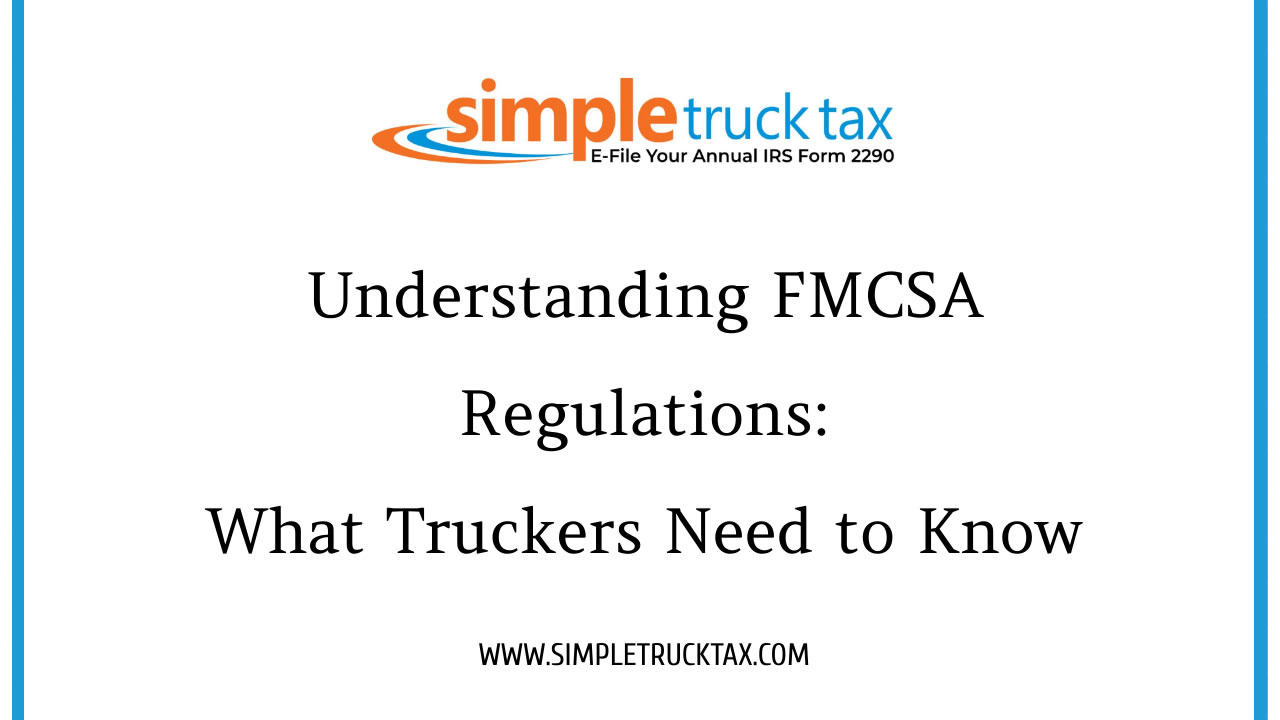
Understanding FMCSA Regulations: What Truckers Need to Know
Decoding FMCSA Regulations: A Needs to Know for Truckers
When it comes to the compliance and safety of the trucking business, the Federal Motor Carrier Safety Administration (FMCSA) is amongst the most crucial factors. Also, for the truckers understanding the FMCSA regulations is not just a means to avoid fines, it’s about ensuring safety, increasing efficiency as well as gaining a competitive edge. We delve deeper into the provisions surrounding FMCSA regulations that every driver should be familiar with.
What Is the FMCSA and Why Does It Matter?
The FMCSA was founded in 2000, it has the duty of overseeing and regulating all commercial motor vehicles that are in the borders of the United States of America. Its task is to help mitigate the rate of crashes, injuries and deaths caused by large trucks and buses. In practice, for a truck driver, adjourning and complying with the principles of the FMCSA means being operational within the bounds of the law, remaining a suitable employee to the employer and ensuring that the general public is safe on the roads.
Key FMCSA Regulations Truckers Should Understand
Hours of Service (HOS) Rules
HOS regulations are designed to avoid any incidents that are caused by fatigue by placing a limit on how many hours a commercial driver would be allowed to operate.
- 11-Hour Driving Rule: Every driver can drive up to a maximum eleven hours after spending a consecutive ten hours off duty.
- 14-Hour Rule: After coming on duty a driver could work for an additional fourteen consecutive hours but would not be able to drive past the 14th hour.
- 30 Minute Break Rule: Driving for over eight hours straight sans at least a thirty minute interval would require such a break.
The compliance with these rules is monitored through the use of Electronic Logging Devices (ELDs).
Electronic Logging Devices (ELDs)
ELD’s are used by probably most of the CMV drivers. The device is particularly useful as it maintains record regarding driving hours to make sure all HOS is complied with.
- Advantages of ELD’s: Less paperwork , correctness of information and easing of inspections.
- Discriminatory factors/ Non Compliance Measures: Fines, shutting down of operations or safety tag negative.
Drug and Alcohol Testing
According to FMCSA, truck drivers must have to take a drug and alcohol test under the following circumstances:
- Pre-employment assessment.
- Random assessment whilst being employed.
- After the accident assessment as per the conditions.
The absence of such test can lead to suspension from driving or losing job.
Vehicle Maintenance and Inspections
These are considered basic requirements which must be complied with. Each driver must carry out a series of daily checks on his vehicle before driving.
- Pre-Trip: Pre-trip inspection is necessary to make sure the brakes, lights and tires are in a healthy condition.
- Annually: All CMV’s undergo an approved inspection by FMCSA once in a year at least.
Accidents and violations may arise from poor maintenance.
CDL Requirements
CDL is needed to operate CMVs, as required by the laws currently. The rules set by the FMCSA show which training and tests will be needed to get a CDL and to hold it.
- Know what states require.
- CDL denial should be avoided due to illegal actions.
In the eyes of compliance the importance of FMCSA compliance is explained.
Adhering to FMCSA’s regulations has its obvious benefits such as:
- Enhanced Safety: Authorities ensure the formulation and compliance of protocols aimed at the minimization of risk factors on the road.
- Greater Image: It is easier to get good clients and contracts with a favorable safety history.
- Avoiding Sanctions: Operational fines as well as its seasonal shutdowns are very difficult for business’s cash flow.
Best Practices for Remaining FMCSA Compliant
- Be in the Know: Every so often there are changes and amendments made to the regulations thus the necessity to remain informed- Subscribing for FMCSA updates or reading up on industry resources.
- Implement Technology: Adopt means such as ELDs and other fleet management software that assists with compliance.
- Seek Training: Participating in workshops by a number of organizations can greatly assist truckers in submitting and interpreting the FMCA Rules.
- Properly File Items: Complete checklists for inspections, hourly logs and tests.
For all concerned individuals, there is an importance in understanding and complying with FMCSA’s regulatory requirements and rules as they contribute to the overall morale, ethics, and professionalism within the trucking industry. But good understanding, routine learning and research can not only help avoid various sanctions but promote a move up the ladder in the career.
Note: For more information, visit IRS website